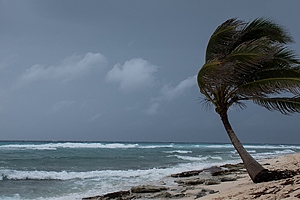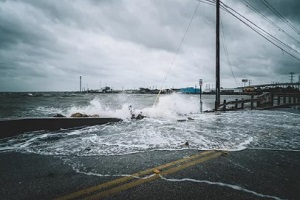 Hurricane insurance is a type of supplemental coverage to home insurance and covers wind-related damage caused by hurricanes. Hurricanes and other tropical storms can bring strong winds, heavy rains, tidal surges, and flying debris that wreaks havoc on homes and businesses.
Hurricane insurance is a type of supplemental coverage to home insurance and covers wind-related damage caused by hurricanes. Hurricanes and other tropical storms can bring strong winds, heavy rains, tidal surges, and flying debris that wreaks havoc on homes and businesses.
With hurricane insurance coverage, policyholders can avoid the significant costs associated with hurricane damage to structures and their possessions. While having hurricane insurance can be highly advantageous, homeowners need to choose a policy that meets their unique needs and offers adequate coverage.
Here are some practical tips for selecting a hurricane insurance policy.
1. Review Your Homeowners Insurance Policy
Standard homeowners’ insurance policies typically cover things like wind damage. However, not all policies have the same specifications. Check the policy for details, such as if coverage ends when winds exceed certain speeds.
Also, check to see if the homeowner’s policy will pay the complete cost to rebuild the home or only enough to make some repairs following wind damage. Homeowners who live in coastal states and have a higher hurricane risk will generally not have windstorm coverage on their homeowner’s policy and may need additional insurance.
2. Know What You Need to Insure
Not all hurricane insurance policies are the same. It is important for policyholders to know what they want to insure and whether the policy provides adequate coverage. In addition to the home itself, a policyholder may want additional coverage for attached or detached structures, such as garages or sheds.
Coverage may also be required for valuables inside the home, such as expensive jewelry or art. Once a person knows what they need to insure, they can start shopping around for quotes.
3. Carefully Compare Costs
The policyholder pays a flat amount for the deductible with standard homeowners’ insurance policies. For example, if the deductible was $2,000, that is how much the policyholder would have to pay before the insurance company would cover any damages.
However, wind damage coverage is not calculated as a fixed amount but rather as a percentage of the home’s insured value, usually between 1 and 5 percent. In addition, consider the premiums, which are generally based on location and the value of the home.
4. Know When the Insurance Policy Takes Effect
 Having hurricane coverage can be very wise, especially if a person lives in a location prone to tropical storms. However, policyholders should always read the terms of their policy, including when the policy takes effect.
Having hurricane coverage can be very wise, especially if a person lives in a location prone to tropical storms. However, policyholders should always read the terms of their policy, including when the policy takes effect.
Depending on the location and the insurance company’s stipulations, a policyholder may need to wait a certain amount before filing a claim. For this reason, it is important not to seek insurance in the middle of hurricane season but rather as soon as possible.
5. Ensure that You Have Adequate Coverage
When buying a home, windstorm or flood insurance, or all three, a policyholder must get enough coverage to pay for the full cost of rebuilding their home and replacing all of their possessions. An insurance agent can help determine how much coverage is needed based on a variety of factors, such as the value of the home and its contents, the level of risk, and the policyholder’s budget.
6. Check to See What Is Covered and Not Covered in the Policy
What is covered under a hurricane insurance policy can vary from provider to provider. Most standard policies cover damage caused by hurricane winds. When it comes to flooding caused by hurricanes, a policyholder may need to purchase a separate flood policy to achieve full protection.
Also, consider whether debris removal may be needed following a hurricane. Many homeowners’ policies will cover some debris removal, but there is usually a cap.
7. Ask About Homeowners’ Discounts
 Homeowners are always looking for ways to save money on their monthly expenses. One of the best ways to cut down on regular costs is for policyholders to ask their insurance companies about potential discounts.
Homeowners are always looking for ways to save money on their monthly expenses. One of the best ways to cut down on regular costs is for policyholders to ask their insurance companies about potential discounts.
Some insurance companies offer discounts to homeowners that take certain steps to protect their homes against hurricane damage. For example, a discount may be given for shutters which help reduce the risk of storm damage to windows.
Contact Atlas Insurance for an Insurance Quote
Hurricane insurance is a combination of insurance policies that homeowners can use to protect their homes from hurricane damage. Anyone living in an area prone to hurricanes can benefit from obtaining hurricane insurance coverage.
Due to Hawaii’s geographical location in the Pacific Ocean, hurricanes are always a major threat to the islands. Fortunately, homeowners can get the coverage they need to protect their homes and personal possessions from the damaging effects of these tropical storms.
To learn more about hurricane insurance coverage options or to get an insurance quote, reach out to Atlas Insurance Agency, A Marsh & McLennan Agency LLC at (808) 400-6634 or request a quote online.
